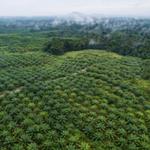This book reflects on Indonesia's recent experience with REDD+ (Reducing Emissions from Deforestation and forest Degradation), all set within a broader discussion of neoliberal environmentalism, hyper-capitalism and Indonesian carbon politics.
Drawing on the author's political ethnographic fieldwork conducted in Jakarta, Central Sulawesi and Oslo, where the author examined Norway's interests and role in implementing REDD+, this book discusses the long evolution of the idea that foreign and private financing can be used to protect tropical forests and the carbon stored within them, resulting in both local economic development and global climate benefits. It shows how neoliberal environmental approaches to climate change, of which REDD+ is a leading example, increase the severity of political contestations that must be overcome to reach global climate mitigation goals, and how recent incarnations of REDD+ have tended to forget earlier scholarly advice to couple anti-deforestation approaches with policies that reduce industrial carbon emissions. In Indonesia, tectonic political and economic forces are shown to have negatively impacted REDD+ implementation. Using a political ecology approach, the book links the literature on REDD+ with that covering Indonesia's recent democratic regression, highlighting how the country's environmental performance in inextricably linked to the timbre of its political governance. Given the severity of the political contestations that must be overcome to reach its stated goals, REDD+ cannot replace global policies that drastically reduce industrial carbon emissions.
David Aled Williams







